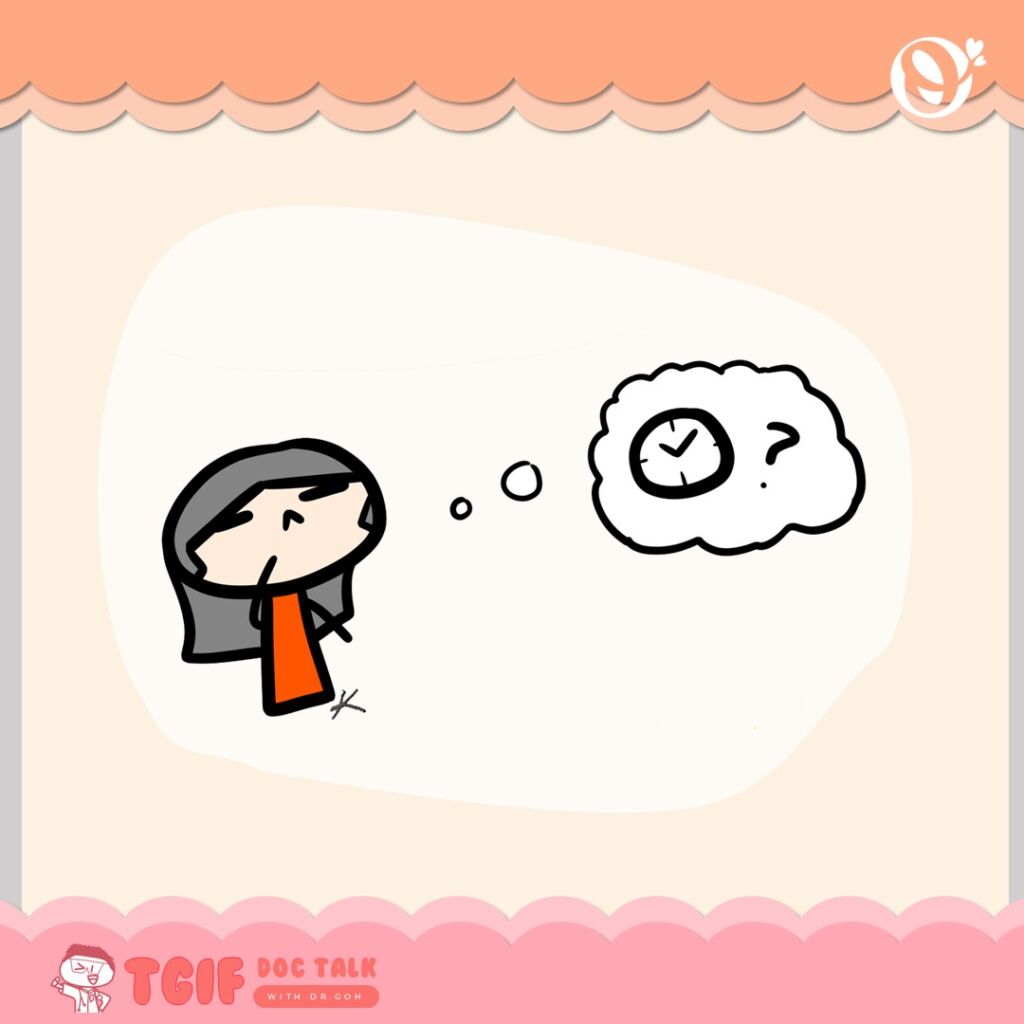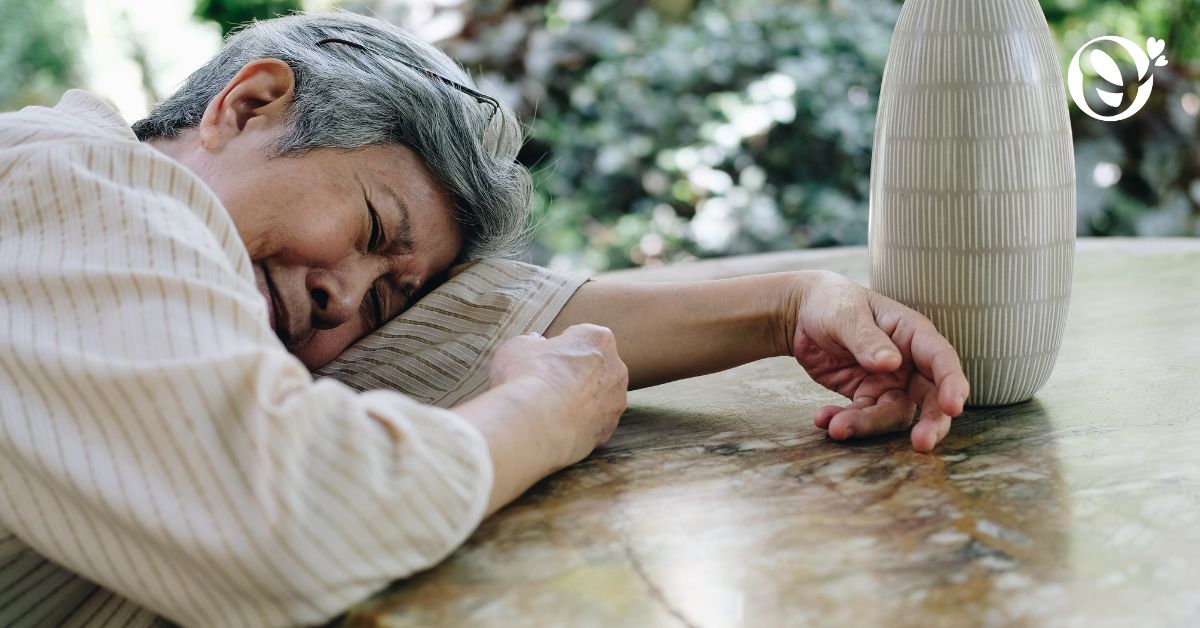Sundowning, also known as sundown syndrome or “late-day confusion”, is a commonly misunderstood symptom in people with Alzheimer’s disease. Families often witness sudden changes in their loved ones’ behaviour in the evening — restlessness, agitation, confusion, and sometimes even aggression. These behavioural shifts can be distressing and overwhelming for caregivers.
What is Sundowning?
Sundowning refers to a specific pattern of symptoms experienced by some individuals with Alzheimer’s disease or other forms of dementia. These symptoms usually emerge in the late afternoon or early evening and may persist into the night.
This behavioural phenomenon is strongly associated with Alzheimer’s and indicates the progression of cognitive decline. While not every person with dementia experiences sundowning, it’s fairly common and may occur sporadically or become a regular nightly challenge.

What Sundowning Looks Like?
Sundowning symptoms may vary, but common behaviours include:
- Pacing back and forth
- Folding clothes repetitively
- Wanting to bathe at unusual hours
- Eating multiple times at night
- Aggressive outbursts
- Talking to people who aren’t there
- Wandering around the home or outside
- Difficulty falling asleep or staying asleep
These behaviours may start as early as late afternoon and extend until early morning.
Why Does Sundowning Happen?
Sundowning is not about being “difficult”. It is caused by several biological and environmental triggers:
1. Disruption of Circadian Rhythm
A major cause is the breakdown of the body’s internal clock, known as the circadian rhythm. Alzheimer’s affects the brain region that regulates sleep-wake cycles, leading to confusion about day and night.
2. Overstimulation or Fatigue
Too much daytime napping or excessive sensory input — like noise, crowds, or sudden changes — can overwhelm individuals with dementia, causing agitation by evening.
3. Unmet Needs
Hunger, thirst, pain, or the need to urinate (especially in elderly men with prostate issues) can trigger distress during the night.
4. New Environment
Being in a new place — like moving into a senior care centre or hospital — can heighten anxiety and confusion. In such cases, elderly individuals often become disoriented after sunset.
5. Underlying Health Conditions
Dehydration, urinary tract infections, constipation, or reactions to medications may worsen sundowning symptoms. Sometimes, it may be the only clue that there is a medical issue.

How to Manage Sundowning at Home
Managing sundowning is possible with consistency, environmental adjustments, and sometimes medical help. Below are some practical strategies:
1. Establish a Daytime Routine
Encourage your loved one to wake up at the same time each morning, engage in light activity, and avoid long naps during the day. A structured schedule reduces confusion and helps reset the body clock.
2. Create a Calm Evening Environment
As the day winds down:
- Dim the lights
- Reduce noise and distractions
- Play soft, calming music
- Avoid screen time before bed
These cues signal to the brain that it is time to relax.
3. Limit Evening Stimuli
Avoid caffeine, heavy meals, or emotionally charged conversations in the evening. Offer a light snack if they are hungry before bed.
4. Check for Physical Discomfort
Ensure your loved one is not in pain, feeling cold, or needing to use the toilet. Addressing these basic needs can prevent restlessness.
5. Keep the Surroundings Safe
Lock doors and remove hazards. Consider using night lights in hallways and bathrooms to reduce confusion if they wake up.

When to Seek Professional Help
Sundowning can become severe, especially if the individual begins:
- Wandering outside unsupervised
- Tampering with electrical appliances (e.g. gas stove)
- Screaming or shouting at night
- Having violent outbursts
At this point, it is important to speak to a geriatrician or psychiatrist. Some medications can help manage the symptoms and improve sleep.
Medicines used may include:
- Alzheimer’s medications (for moderate to severe stages)
- Sleep aids or anti-anxiety drugs (used cautiously)
However, sedatives carry risks — especially falls. If a sedated person gets up in the night, they’re most likely to fall, leading to a serious injury. Hence, medication should always be tailored to the patient’s condition and monitored closely.
Support Options for Families in Malaysia
Caregiving services such as senior daycare centres, nursing homes, and concierge care can offer essential respite and structured routines that reduce the risk of sundowning. These services also allow seniors to engage in meaningful activities during the day, reducing napping and promoting better sleep at night.
Final Thoughts
Sundowning is a clear indicator that dementia care goes beyond memory loss — it involves understanding behaviours, routines, and triggers. With the right approach, families can ease the nightly struggles and build a calmer, safer environment for their elderly loved ones.
Whether you’re managing care at home or exploring senior daycare services in your area, remember: you’re not alone, and help is available.
Expert Advice from Dr. Goh
Want a deeper understanding of sundowning? Listen to Dr. Goh’s expert overview in this exclusive clip.
Important Note
This article is for informational purposes only and does not constitute medical advice, diagnosis, or treatment. If your loved one is exhibiting sundowning or dementia-related symptoms, consult a qualified geriatrician or healthcare provider.




